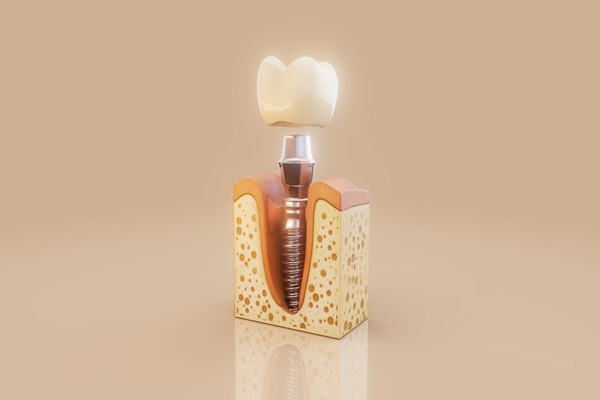TMJ Treatment From a General Dentist

TMJ treatment from a general dentist fosters relief for individuals who experience jaw discomfort, clicking sounds, and restricted movement in the temporomandibular joints (TMJs). These joints, located on each side of the face, allow essential motions such as chewing and speaking. When the joint or surrounding muscles become inflamed, misaligned, or stressed, everyday tasks may feel difficult and uncomfortable. A general dentist can evaluate these concerns, recommend effective therapies, and encourage supportive habits that protect overall jaw health.
Common causes of TMJ issues
Many factors contribute to issues with the TMJs. Chronic clenching or grinding (bruxism) places constant tension on the jaw muscles, leading to joint irritation. Injuries to the face or jaw may also trigger pain or misalignment. Some individuals experience complications from an uneven bite, where the upper and lower teeth do not fit together comfortably. Poor posture and high stress levels can intensify these problems, causing persistent tightness and discomfort in the jaw area.
Benefits of early intervention
Prompt TMJ treatment provides multiple advantages for overall oral health. A stable jaw position leads to more comfortable chewing and speaking patterns, improving social confidence. Decreasing chronic inflammation around the TMJs may also reduce the frequency of headaches or neck pain. Early care often prevents the condition from worsening, which can reduce the likelihood of invasive procedures in the future.
How a general dentist provides TMJ treatment
No matter when one seeks TMJ treatment, a general dentist plays a key role in identifying the root causes of TMJ discomfort. Diagnostic steps often include a thorough physical examination of the jaw, along with dental imaging that offers clear insight into joint function, bite alignment, and muscle involvement. The dentist will then use this information to customize a TMJ treatment plan.
Conservative therapies may involve custom oral appliances designed to reposition the jaw or minimize grinding and clenching. These devices cradle the upper or lower teeth and relieve pressure on the joints, allowing inflamed muscles to rest. A dentist may also recommend gentle jaw exercises, which help stretch and strengthen the jaw muscles and ligaments. Other strategies, such as warm compresses, stress management, and a soft-food diet, can reduce tension and encourage healing from within.
Self-care tips and supportive measures
In addition to consulting a general dentist, patients can adopt techniques at home to ease the tension in these joints and support their comprehensive TMJ treatment. Techniques such as mindful movement and stress management are integral in reducing discomfort. Paying close attention to jaw habits helps minimize unnecessary strain. For example, limiting repetitive chewing of gum or ice, taking breaks during extended conversations, and practicing relaxation techniques throughout the day can all ease the stress on the TMJs.
Further, elevated stress levels often contribute to unconscious clenching and grinding, so activities like meditation, progressive muscle relaxation, and focused breathing encourage a calmer nervous system and may alleviate tension in the jaw and neck. Consistently combining these self-care methods with guidance from a general dentist supports a more stable jaw.
Schedule a consultation
TMJ treatment from a general dentist emphasizes targeted, conservative strategies that address discomfort at its source. Anyone experiencing persistent jaw pain, stiffness, or clicking noises should contact Buhite & Buhite DDS's Rochester office and schedule a consultation. Our dentist can personalize a plan that can provide long-term relief.
Request an appointment here: https://www.buhite.com or call Buhite & Buhite DDS at (585) 310-4078 for an appointment in our Rochester office.
Check out what others are saying about our dental services on Yelp: TMJ Treatment in Rochester, NY.
Related Posts
Temporomandibular joint (TMJ) disorders can cause significant jaw pain and affect everyday functions like speaking, eating, and overall comfort. A TMJ dentist specializes in diagnosing and treating issues related to the jaw joint and surrounding solutions. These dental professionals offer effective solutions that address the root cause of your jaw pain.The temporomandibular joint connects the…
A dental crown and a bridge both restore smiles, but they solve different problems and follow different procedures. Many patients ask which option is best when a tooth breaks, cracks, or goes missing. Typically, a general, cosmetic, or family dentist would repair a tooth with a crown but replace a missing tooth with a bridge.…
A preventive dentist promotes long-term oral wellness by focusing on early detection, regular checkups, and proactive measures to protect teeth and gums from disease. By prioritizing prevention, you can avoid many dental issues before they even begin. Explore some of the most frequently asked questions about preventive dentistry, gain valuable insight that can help you…
If you have a missing tooth you would like to replace, you need to learn more about getting a dental implant. Dental implants can improve your smile. They can also prevent many of the problems associated with missing teeth. Implants are one of the most popular options for replacing teeth. If you are thinking about…


